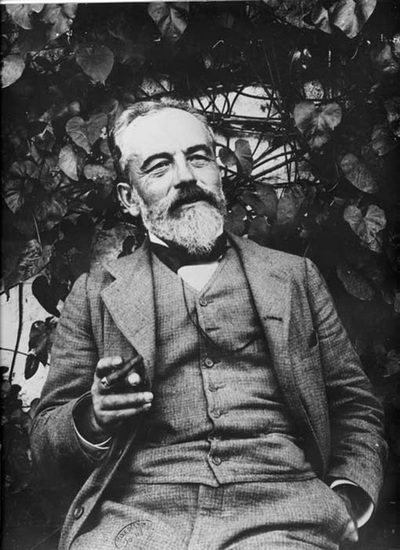Marcel Alexandre Bertrand (Marcel Alexandre Bertrand)

Marcel Alexandre Bertrand (July 2, 1847 – February 13, 1907) was a French geologist born in Paris. He was the son of mathematician Joseph Louis François Bertrand (1822–1900), and son-in-law to physicist Éleuthère Mascart (1837-1908). He was a student at the École Polytechnique, and beginning in 1869 he attended the Ecole des Mines de Paris. Beginning in 1877 he performed geological mapping studies of Provence, Jura Mountains and the Alps. In 1886 he became an instructor at the École Nationale Supérieure des Mines, and in 1896 was appointed a member of the Académie des sciences.
Bertrand was a founder of modern tectonics. He is remembered for the orogenic “wave theory” of mountain-building and his introduction of the nappe hypothesis (nappe de charriage). His wave theory described a build-up of massive folds of earth taking place over successive geological eras, called the Caledonian, Hercynian and Alpine periods of orogeny. Later he added a fourth event called the Huronian orogeny, which took place in Precambrian time. He was two-time winner of the Prix Vaillant (1886 & 1890), awarded by the Concours de Géologie, and also winner of the Prix Fontannes (of the Société géologique de France) in 1888 and the Prix Petit d’Ormoy in 1893.
Born
- July, 02, 1847
- Paris, France
Died
- February, 13, 1907
Cemetery
- Cimetière de Montparnasse
- Paris, France

